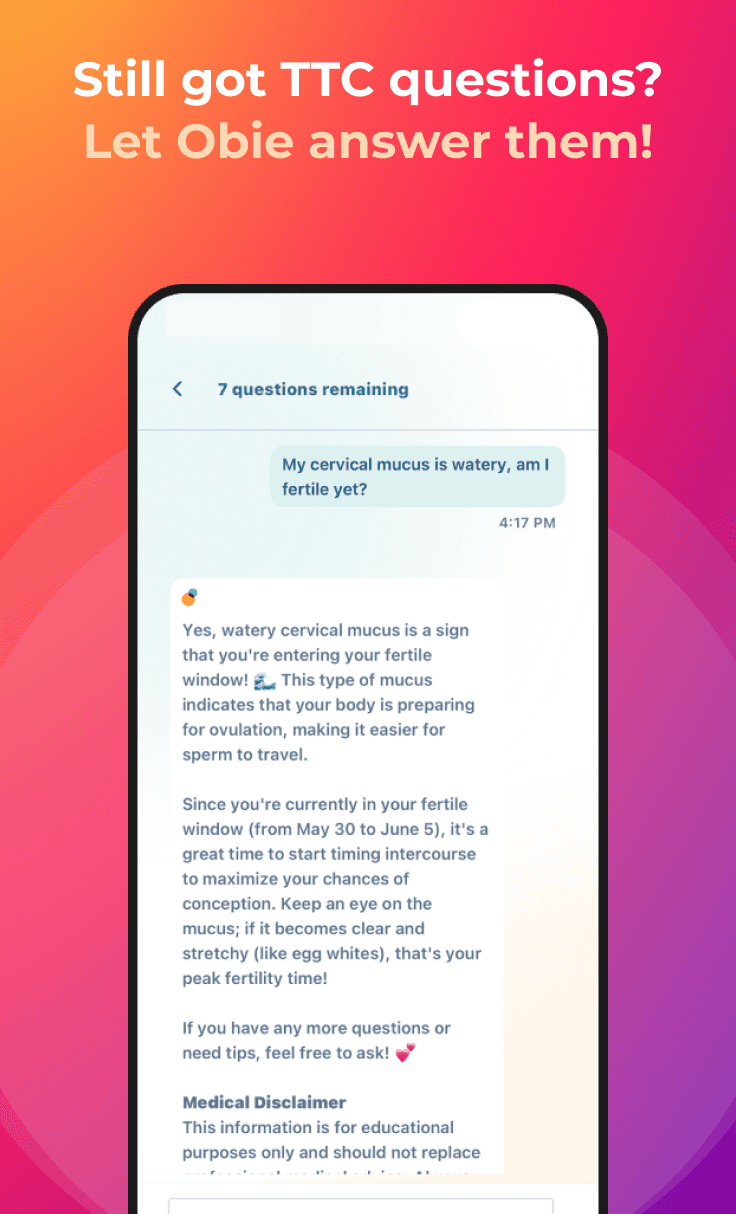What You Should Know Before Pregnancy: Top Pre-Trimester Tips
Preconception
Obie Editorial Team

Every time a baby is born, it's a reminder of the importance of preparedness for pregnancy. As doctors, we encourage all prospective parents to embark on this journey of conception well-informed, ideally reaching out for guidance even before trying to conceive.
The ideal time to start your pre-trimester pregnancy preconception prep is at least 2-3 months before you plan on becoming pregnant. For guidance, consider this preconception checklist.
There's a wealth of knowledge to assimilate before pregnancy, and understanding it gives you power over your health and choices. Here’s what we wish all our patients had known prior to pregnancy.
Schedule a Doctor’s Visit First
Begin with a thorough preconception visit for both partners. This includes crucial pre-trimester tests. The pre-trimester is your time for targeted preparation. During your visit, the doctor may suggest certain tests informed by your medical history. Testing can identify issues like sexually transmitted diseases, which are vital to treat prior to conception to ensure a healthy pregnancy and baby. Ensure you are up-to-date with vaccinations and consider seeing a genetic counselor if necessary.
Increase Your Knowledge
Educating yourself about all aspects of pregnancy is fundamentally important. Prioritize a healthy lifestyle at least three months before attempting conception. Healthier bodies and minds support enhanced fertility, reduce risks of miscarriage and birth defects, and lessen potential pregnancy complications.
Start Prenatal Vitamins Early
If you're planning to conceive, start taking a prenatal vitamin supplement containing folic acid. Avoid megavitamins, as excessive doses of certain vitamins can lead to complications. Specifically, high levels of vitamin A have been linked to birth defects. Stick with prenatal vitamins that have proven benefits and include folic acid.
Incorporate Folic Acid
Initiate a regimen of prenatal vitamins with folic acid and Omega-3 at least 1-2 months before pregnancy. Folic acid has been shown to drastically reduce the risk of neural tube defects when begun early.
The US Public Health Service advocates folic acid for all women capable of conceiving. Start folic acid at least 4 weeks before conception, and maintain this intake through the initial 12 weeks of pregnancy, and ideally through nursing.
Prioritize Healthy Nutrition
Nutrient-rich food choices are crucial. Achieving a nutritious and balanced diet before and during pregnancy is foundational. Certain nutrients are non-negotiable. Learn which foods bolster health and which, such as undercooked meats or deli items that could harbor toxoplasmosis or listeria, to avoid during pregnancy.
Conception is a Joint Effort
The pre-trimester period includes both partners. A man’s health is equally vital to successful conception and a healthy pregnancy. Men can take significant steps to optimize fertility and support their partners.
Enhance His Health
The conception journey for men should mirror healthy adjustments made by women. Adopting a couple’s approach to preconception health ensures shared motivation and commitment to lifestyle changes. Yearly check-ups for men are critical to monitor health markers and catch emerging issues early before they become chronic.
Optimize Her Health
Physical pregnancy lasts approximately 40 weeks, but preparation often starts long before that with the pre-trimester phase. Strive to reach your peak health. Adopt time for diet and lifestyle changes, some of which take longer to fully implement. Your preconception health is directly related to successful pregnancy health.
Aim for Optimal Weight
Both underweight and overweight conditions can affect fertility, health, and pregnancy outcomes. Attaining a healthy weight optimizes fertility success rates. Use the BMI calculator to achieve a BMI of 19.5-24.9, benefiting both partners.
Evaluate Need for a Fertility Specialist
If you've been trying to conceive for a year (or six months if over 35) without success, consider consulting a fertility specialist. Take the Infertility Specialist Test to assess if further expertise from a reproductive endocrinologist is necessary.
Review Medications
Review all current medications, including over-the-counter and supplements, with your doctor to ensure they're safe while trying to conceive and during pregnancy.
Cease Smoking, Drugs, and Excess Alcohol
Both partners should eliminate smoking, excessive alcohol, and drug use. Studies indicate smoking adversely affects fertility for both sexes; reducing or eliminating these habits promotes healthier conception.
Birth Control Timing
Learn when to stop birth control to optimize your chance of becoming pregnant as soon as you're ready, recognizing each body responds differently.
Learn Your Fertile Window
Understand the best timing for conception within your cycle. Maximize conception chances by recognizing your most fertile periods.
Don’t Forget Dental Health
Untreated gum diseases can negatively impact pregnancy outcomes. Schedule regular dental check-ups to maintain oral health before conceiving.
Insurance Preparedness
Ensure your health insurance covers pregnancy-related expenses. Review your insurance needs early on to avoid financial stress during pregnancy.
Choose the Right Provider and Facility
Research and choose a suitable hospital and maternity unit, focusing on factors like facility resources, staffing, and patient care.
Emphasize Relaxation
Reducing stress can enhance fertility by balancing hormones that impact conception. Learn stress-management techniques to improve your chances of conceiving.









